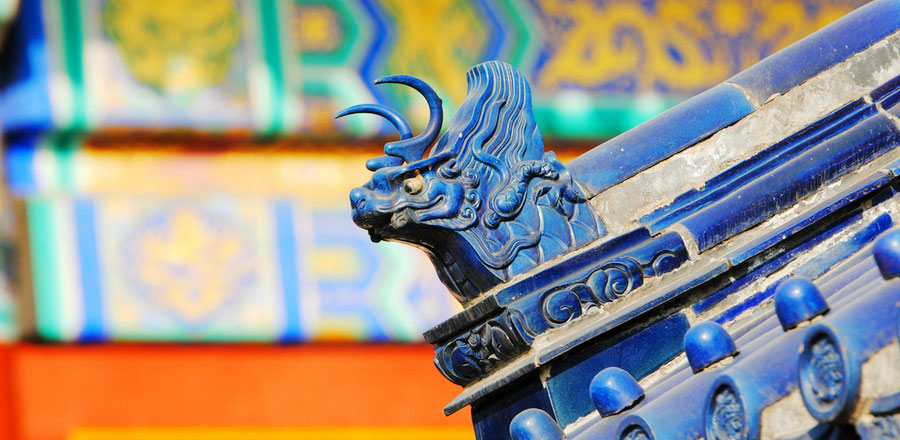'Island defenses depend on threat': PLAN chief
Updated: 2016-01-22 12:44
By LI Xiao Kun in Beijing Chen Weihua in Washington(China Daily USA)
|
||||||||
The number of military facilities China builds on its South China Sea islands will depend upon the level of threat it faces, People's Liberation Army Navy (PLAN) chief told his US counterpart on Wednesday in a video teleconference.
Admiral Wu Shengli, PLAN commander, stressed that Beijing does not seek militarization.
This month, Beijing landed three commercial airplanes on Yongshu Jiao in the Nansha Islands. While Vietnam, the Philippines and the US protested, Beijing said its sovereignty over the region is indisputable.
Earlier in January, the Foreign Ministry confirmed that China had completed an airfield on Yongshu Jiao, China's southernmost airfield.
Wu told US Chief of Naval Operations Admiral John Richardson that the landings were made to see whether the airport was up to civilian airline standards, according to China's Ministry of National Defense.
This would better help China meet its international obligations and provide more public service to other countries, Wu said.
The two-hour discussion was the third time the two have engaged with each other through video teleconferencing, the previous time being last October. Conversations between the two heads of navy serve to establish a dialogue that reduces the risk of miscalculation between their two forces, the US Navy said in a press release.
"Our necessary defensive step of building on islands and reefs in the Nansha Islands is not militarization, but that interpretation has been maliciously hyped up by certain countries and media," Wu told Richardson.
He said any militarization would depend on the purpose of the construction and how the facilities are used once they are completed.
"We will certainly not seek the militarization of the islands and reefs, but we won't neglect to set up defenses. The extent of military defense measures depends completely upon the level of threat we face," Wu said.
The Chinese navy has the ability and determination to protect the sovereignty and security of the Nansha Islands, he said.
Richardson added in a news release that the US Navy would continue sailing in and flying over the South China Sea and the rest of the world in accordance with international law.
He told Wu that 2015 was the "most productive year" for the development of bilateral ties between the Chinese and US navies.
"I value these discussions - face-to-face interaction and frank exchanges help build a personal connection that benefits both our navies now and into the future," Richardson said.
The two naval chiefs highlighted progress in the relationship between the US Navy and PLAN, noting successful exchanges and visits that occurred during 2015. Each conveyed a willingness to build on that progress in 2016.
Both admirals discussed upcoming opportunities to meet in-person for the first time later this year, according to a US Navy press release.
In October, China was angered that a US Navy ship sailed near one of the islands. The Pentagon said it plans additional patrols in the future.
Zhu Feng, executive director of the Collaborative Innovation Center of South China Sea Studies at Nanjing University, said that as China makes a huge investment in construction on islands in the South China Sea, "it is impossible to not set up defenses there".

"However, making some defense cannot be equated with militarization. Those are two different concepts," he said.
The US is unlikely to end its navigation of the South China Sea, Zhu said, and the impact that has on regional stability depends on "how much it will threaten China's sovereignty and security".
US Deputy Secretary of State Anthony Blinken visited China on Wednesday and Thursday to prepare for a trip to Beijing on Jan 27 by Secretary of State John Kerry. Tensions arising from North Korea's nuclear test and in the South China Sea are likely to be among major topics discussed.
Chinese President Xi Jinping said during his state visit to Washington last September that China has no intention of militarizing its facilities in the South China Sea.
Douglas Paal, vice-president for studies and director of the Asia program at the Carnegie Endowment for International Peace, believes the US will try to nail down that commitment and test for any change.
"China will have complaints about freedom of navigation exercises and perceived US interference," Paal said.
Visiting Washington early this week, Australian Prime Minister Malcolm Turnbull described President Xi's commitment to the South China Sea as genuine and he called on the US to ratify the UN Convention on the Law of the Sea.
Reuters contributed to this story.
Contact the writers at lixiaokun@chinadaily.com.cn and chenweihua@chinadailyusa.com
- Netizen backlash 'ugly' Spring Festival Gala mascot
- China builds Mongolian language corpus
- China's urban unemployment rate steady at 4.05 pct
- German ecologist helps relieve poverty in Sichuan
- 'Unhurried' Guizhou village makes NY Times list of places to visit
- Railway police nab 40,315 fugitives in 2015
- 7 policemen, 3 civilians killed in Egypt's Giza blast
- Former US Marine held in Iran arrives home after swap
- Powerful snowstorm threatens US East Coast; flights canceled
- 2015 Earth's hottest year on record: US agencies
- 8 killed in car bomb near Russian Embassy in Kabul
- Researchers find possible ninth planet beyond Neptune

 Art exhibitions in 2016 worth seeing
Art exhibitions in 2016 worth seeing
 Winter flexes its muscles as cold snap makes its way
Winter flexes its muscles as cold snap makes its way
 Bright Temple of Heaven shines in winter
Bright Temple of Heaven shines in winter
 Netizen backlash 'ugly' Spring Festival Gala mascot
Netizen backlash 'ugly' Spring Festival Gala mascot
 Egyptian welcome for Chinese President Xi Jinping
Egyptian welcome for Chinese President Xi Jinping
 Robots reads China Daily to stay up to date with news in Davos
Robots reads China Daily to stay up to date with news in Davos
 China's Yao honored with Crystal Award in Davos
China's Yao honored with Crystal Award in Davos
 Happy memories warm the winter
Happy memories warm the winter
Most Viewed
Editor's Picks

|

|

|

|

|

|
Today's Top News
National Art Museum showing 400 puppets in new exhibition
Finest Chinese porcelains expected to fetch over $28 million
Monkey portraits by Chinese ink painting masters
Beijing's movie fans in for new experience
Obama to deliver final State of the Union speech
Shooting rampage at US social services agency leaves 14 dead
Chinese bargain hunters are changing the retail game
Chinese president arrives in Turkey for G20 summit
US Weekly

|

|







